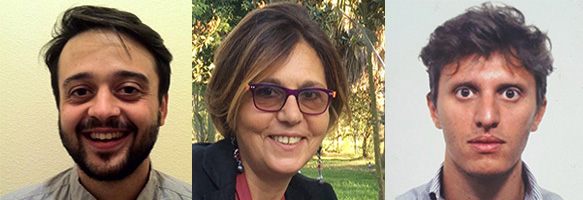Analysis of the Demand and Emotional Textual Analysis: action-research methods for organisational consultancy
The objective of the PDW is to propose a learning experience of the Analysis of Demand (A.D.) and the Emotional Textual Analysis (E.T.A.) action-research methods (Carli & Paniccia, 2003; Carli et al., 2016). A.D. is based on the methodological hypothesis that, within the transferal relationship between the consultant and the organizational system, the unconscious emotional dynamics shaping the relationship between the organization and its clients’ system are reenacted. E.T.A. is a method aimed to explore the emotional culture of the organization and the problems faced with its clients’ system. E.T.A. is based on audio-recorded free association interviews, their transcription and analysis. By using statistical software, such as T-Lab (Lancia, 2004), the assembled text of the interviews is analysed in order to detect clusters of keywords, previously selected by the consultant as polysemic at an emotional level. Through a psychoanalytic interpretation of the detected clusters, E.T.A. supports both the consultant and the organization in producing awareness about the unconscious semiotic process that drives the social process of sensemaking within the organization.
Theoretical approach
The PWD is based on the hypothesis that the identification of otherness as the enemy represents an oversimplification of the emotional dynamics underpinning relationships within a social system. This leads to defensive social processes hindering the productivity and creativity of organizational contexts. Therefore, it is crucial for the consultant to have available methods and tools able to shed light on what Long calls the associative unconscious of organizations (Long, 2013; Stamenova & Hinselwood, 2018, Salvatore & Freda, 2010), that is the creative and complex semiotic matrix driving social processes of sensemaking within the organizational context. Consistently with this perspective, A.D. and E.T.A. are theoretically based on a semiotic conception of the unconscious, the foundations of which were firstly laid down in Italy by Matte Blanco (1975) and Fornari (1976) within the Italian Psychoanalytic Society, and then developed by Carli and Paniccia (1981, 2002, 2003, 2018). The latter, over 40 years of organisational consultancy work, contributed to translate more recent developments of psychoanalytic theory into active tools of social research and intervention.
Structure and methodology
The PDW’s structure foresees a 3 hours online session for a group between 3 and 10 participants. The participants will receive a pre-recorded video that will introduce the theoretical and methodological characteristic of the A.D and E.T.A. In the workshop we will ask the participants to present themselves, their work and field of study, as well as their expectations towards the PDW. The presenters will share examples of action-research conducted using A.D. and E.T.A in different organisational and institutional contexts, both within the public and the private sector, focusing on the main methodological characteristics of the intervention. Furthermore, we will practically implement an Emotional Textual Analysis of a corpus of interviews collected by the authors within the framework of an organizational consultancy work.
Facilitators

Felice Bisogni is a clinical psychologist, Specialist in Psychoanalytic Psychotherapy and Phd in Social Psychology. In 2012 he founded the Association GAP (www.apsgap.it), an organization providing organizational consultancy services for health services, social services, schools and third sector organizations. He got his Phd in Social Psychology at Sapienza University with an action-research project that analyzed the organizational functioning of assistance services for adults with intellectual disability. In his doctoral research he gained advanced competences in the discourse and textual analysis. He graduated in the Specializing Course in Psychoanalytic Psychotherapy, Clinical Psychological Intervention and Analysis of the Demand where he deepens the knowledge of action-research methods for the organizational development. He regularly participates in International Conference presenting papers on the results of his action-research project such as QRMH7 Seventh international Conference on Qualitative Research on Mental Health in Berlin (2018), the Third International Conference of the Couple and Family Psychoanalysis Committee (COFAP) of International Psychoanalytical Association (IPA) in Naples (2019), the 36th Colloquium of the European Group for Organisational Studies in Edinburgh (2019).
Francesca Dolcetti is a clinical psychologist and psychotherapist in private practice in Rome; lecturer at the School of Specializing Course in Psychoanalytic Psychotherapy, Clinical Psychological Intervention and Analysis of the Demand of SPS (Rome, Italy), where she teaches Emotional Textual Analysis training model and techniques. She graduated both in Business Administration and in Clinical and Community Psychology. Co-founder and CEO of the Studio RisorseObiettiviStrumenti that provides qualitative and quantitative research methodology services with particular emphasis for supporting transformation of organisational cultural models, social climate, occupational safety and health evaluation, social impact evaluation in contexts as schools, health services and with different organization in the field of social economy.
Stefano Pirrotta is reseacher and organisational consultant with the Association of Social Promotion GAP. He was research assistant at University of Rome “La Sapienza” Department of Earth Sciences, Laboratory of Chemistry of Fluids (2012-2016). He holds a MA in clinical Psychology from University of Rome ‘La Sapienza’ (2011).
Linkedin: https://www.linkedin.com/in/stefanopirrotta/?locale=en_US


 Translate
Translate